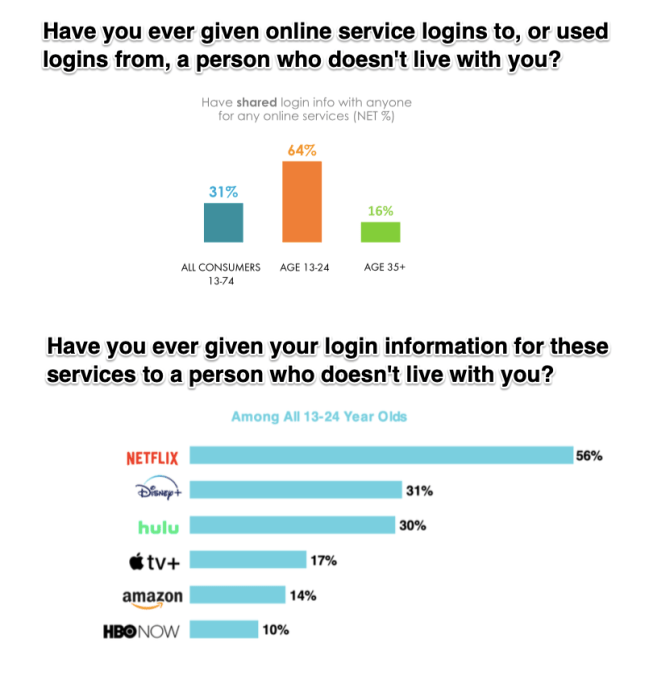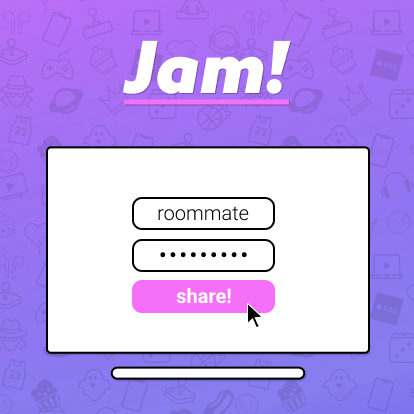Tech Nuggets with Technology: This Blog provides you the content regarding the latest technology which includes gadjets,softwares,laptops,mobiles etc
Monday, February 10, 2020
Audi to provide lifestyle services to customers in India
Govt clocks Rs 40,000 crore in public procurement transactions through GeM portal
Big handset makers may discontinue sub- Rs5k models
Nearby retail shop as ATM? PhonePe toys with the idea
Redmi Launch in India Today: How to Watch Live Stream
IIT-B students to help BoB build tech dominance
Varo Money says it has received FDIC approval for federal deposit insurance, bringing it closer to a national bank charter, a first for a fintech startup (Felix Salmon/Axios)
Felix Salmon / Axios:
Varo Money says it has received FDIC approval for federal deposit insurance, bringing it closer to a national bank charter, a first for a fintech startup — Digital banks have dreamed of this day since Bank Simple first launched in 2012.
Google's HR head, Eileen Naughton, to step down from her role amid rising employee anger over Google's handling of sexual harassment claims and staff protests (Danielle Abril/Fortune)
Danielle Abril / Fortune:
Google's HR head, Eileen Naughton, to step down from her role amid rising employee anger over Google's handling of sexual harassment claims and staff protests — Google's head of human resources, Eileen Naughton, will step down later this year amid rising tensions between the company's top executives and rank and file employees.
Jam lets you safely share streaming app passwords
Can’t afford Netflix and HBO and Spotify and Disney+…? Now there’s an app specially built for giving pals your passwords while claiming to keep your credentials safe. It’s called Jam, and the questionably legal service launched in private beta this morning. Founder John Backus tells TechCrunch in his first interview about Jam that it will let users save login details with local encryption, add friends you can then authorize to access your password for a chosen service, and broadcast to friends which of your subscriptions have room for people to piggyback on.
 Jam is just starting to add users off its rapidly growing waitlist that you can join here, but when users get access, it’s designed to stay free to use. In the future, Jam could build a business by helping friends split the costs of subscriptions. There’s clearly demand. Over 80% of 13-24 year olds have given out or used someone else’s online TV password, according a study by Hub of over 2000 US consumers.
Jam is just starting to add users off its rapidly growing waitlist that you can join here, but when users get access, it’s designed to stay free to use. In the future, Jam could build a business by helping friends split the costs of subscriptions. There’s clearly demand. Over 80% of 13-24 year olds have given out or used someone else’s online TV password, according a study by Hub of over 2000 US consumers.
“The need for Jam was obvious. I don’t want to find out my ex-girlfriend’s roommate has been using my account again. Everyone shares passwords, but for consumers there isn’t a secure way to do that. Why?” Backus asks. “In the enterprise world, team password managers reflect the reality that multiple people need to access the same account, regularly. Consumers don’t have the same kind of system, and that’s bad for security and coordination.”
Thankfully, Backus isn’t some amateur when it comes to security. The Stanford computer science dropout and Thiel Fellow founded identity verification startup Cognito and decentralized credit scoring app Bloom. “Working in crypto at Bloom and with sensitive data at Cognito, I have a lot of experience building secure products with cryptography at the core.
He also tells me since everything saved in Jam is locally encrypted, even he can’t see it and nothing would be exposed if the company was hacked. It uses similar protocols to 1Password, “Plaintext login information is never sent to our server, nor is your master password” and “we use pretty straightforward public key cryptography.” Remember, your friend could always try to hijack and lock you out, though. And while those protocols may be hardened, TechCrunch can’t verify they’re perfectly implemented and fully secure within Jam.

Whether facilitating password sharing is legal, and whether Netflix and its peers will send an army of lawyers to destroy Jam, remain open questions. We’ve reached out to several streaming companies for comment. When asked on Twitter about Jam helping users run afoul of their terms of service, Backus claims that “plenty of websites give you permission to share your account with others (with vary degrees of constraints) but users often don’t know these rules.”
 However, sharing is typically supposed to be amongst a customer’s own devices or within their household, or they’re supposed to pay for a family plan. We asked Netflix, Hulu, CBS, Disney, and Spotify for comment, and did not receive any on the record comments. However, Spotify’s terms of service specifically prohibit providing your password to any other person or using any other person’s username and password”. Netflix’s terms insist that “the Account Owner should maintain control over the Netflix ready devices that are used to access the service and not reveal the password or details of the Payment Method associated to the account to anyone.”
However, sharing is typically supposed to be amongst a customer’s own devices or within their household, or they’re supposed to pay for a family plan. We asked Netflix, Hulu, CBS, Disney, and Spotify for comment, and did not receive any on the record comments. However, Spotify’s terms of service specifically prohibit providing your password to any other person or using any other person’s username and password”. Netflix’s terms insist that “the Account Owner should maintain control over the Netflix ready devices that are used to access the service and not reveal the password or details of the Payment Method associated to the account to anyone.”
Some might see Jam as ripping off the original content creators, though Backus claims that “Jam isn’t trying to take money out of anyone’s pocket. Spotify offers [family plan sharing for people under the same roof]. Many other companies offer similar bundled plans. I think people just underutilize things like this and it’s totally fair game.”
Netflix’s Chief Product Officer said in October that the company is monitoring password sharing and it’s looking at “consumer-friendly ways to push on the edges of that.” Meanwhile, The Alliance For Creativity and Entertainment that includes Netflix, Disney, Amazon, Comcast, and major film studios announced that its members will collaborate to address “piracy” including “what facilitates unauthorized access, including improper password sharing and inadequate encryption.”
That could lead to expensive legal trouble for Jam. “My past startups have done well, so I’ve had the pleasure of self-funding Jam so far” Backus says. But if lawsuits emerge or the app gets popular, he might need to find outside investors. “I only launched about 5 hours ago, but I’ll just say that I’m already in the process of upgrading my database tier due to signup growth.”

Eventually, the goal is not to monetize not through a monthly subscription like Backus expects competitors including password-sharing browser extensions might charge. Instead “Jam will make money by helping users save money. We want to make it easy fo users to track what they’re sharing and with whom so that they can settle up the difference at the end of each month” Backus explains. It could charge “either a small fee in exchange for automatically settling debts between users and/or charging a percentage of the money we save users by recommending more efficient sharing setups.” Later, he sees a chance to provide recommendations for optimizing account management across networks of people while building native mobile apps.
“I think Jam is timed perfectly to line up with multiple different booming trends in how people are using the internet”, particularly younger people says Backus. Hub says 42% of all US consumers have used someone else’s online TV service password, while amongst 13 to 24 year olds, 69% have watched Netflix on someone else’s password. “When popularity and exclusivity are combined with often ambiguous, even sometimes nonexistent, rules about legitimate use, it’s almost an invitation to subscribers to share the enjoyment with friends and family” says Peter Fondulas, the principal at Hub and co-author of the study. “Wall Street has already made its displeasure clear, but in spite of that, password sharing is still very much alive and well.”
From that perspective, you could liken Jam to sex education. Password sharing abstinence has clearly failed. At least people should learn how to do it safely.
PROTIP: Feeling lonely? Go to your Netflix settings, click "Sign out of all devices," and wait a few hours.
Voilà! If you check your phone now, you'll find you have several new texts from friends you haven't spoken to in years.
— John Backus (@backus) January 15, 2020
White House requests $15 billion to establish Space Force
The Space Force will be taking one giant leap towards reality if the Department of Defense’s proposed budget and operations go through. $15 billion is requested, which would fund a number of missions and help establish the more than 10,000 personnel expected to join the new military branch over the next year.
Estimates for how much it would cost to really establish the Space Force have varied widely, due in some part to the original haziness of the vision, but also because even had that vision been crystal clear, the timing and method of accomplishing it would be the subject of major debate.
In the end the Pentagon has decided in true military style to strike fast and hard at this, which for all they know may be the last opportunity to do so with this administration. Who knows what the new year may bring?

Its request, detailed as part of an overall budget proposal of $705 billion, would be for $15B in FY2021. These funds would be used to “consolidate the preponderance of space missions, units, resources, and personnel from the existing Military Services into the new U.S. Space Force,” with a goal of doing so completely by 2024.
This isn’t exactly new funding as much as shifted over from elsewhere within the Air Force, under which the new command will exist, and which currently has authority over the most of the armed forces’ space-related missions, assets and personnel. For reference, $15B is about 60 percent of the size of the proposed NASA budget (which to be clear is not coming out of the DoD’s pocket). Notably the National Reconnaissance Office, which essentially presides over space-based spying, will not transfer over.
2021 NASA budget request includes $3.3B for human lunar landers, $430M for Moon resource development
Under the proposed budget and transfers, the Space Force will grow from a ragtag group of 122 civilians and 38 military personnel to only a few shy of 10,000 — about 35 percent civilian and the remainder military. These are mostly going to be from the Air Force’s Space Command, which is essentially being eaten by Space Force.
Three projects are given line items in the budget. $1.6B for three launches for national security purposes (unlikely to be detailed further given their nature), $1.8B for two launches of GPS satellites and related systems, and $2.5B to continue development of the Next-Generation Overhead Persistent Infrared project for missile detection.
As with other budgets we’ve covered in the last week, this one is a proposal, not an allocation; Congress will be the ones to make the final decision on amounts, though it seems unlikely that the Space Force will be derailed at this stage. Since it is largely taking custody of existing programs and service members, with new HQs and projects still years off, it seems relatively safe from cuts.
India vs New Zealand Third ODI Today: How to Watch Live
Poco X2 Sale Today at 12 Noon via Flipkart: All You Need to Know
Aerospace firm Ananth Technologies to build foreign-owned satellites in India
NASA puts a price on a 2024 Moon landing—$35 billion

Enlarge / NASA Administrator Jim Bridenstine discusses the FY 2021 budget proposal during a State of NASA address, Monday, Feb. 10, 2020, at Aerojet Rocketdyne's facility at Stennis Space Center. (credit: NASA)
Nearly 10 months after Vice President Mike Pence directed NASA to return astronauts to the Moon by 2024, the space agency has estimated how much its Artemis Program will cost. NASA says it will need an additional $35 billion over the next four years—on top of its existing budget—to develop a Human Landing System to get down to the Moon's surface from lunar orbit while also accelerating other programs to make the 2024 date.
NASA's human spaceflight chief, Doug Loverro, shared this number Monday at Johnson Space Center, as the Trump White House released its fiscal year 2021 budget. It calls for a big increase in NASA's budget, 12 percent over last year's budget request, with a top-line number of $25.2 billion.
The biggest increase will go toward the Human Landing System, $3.37 billion in fiscal year 2021 alone. NASA says, if funded by Congress, this would mark the first time the United States has directly spent money on a lunar lander since the Apollo program in the 1960s. The human spaceflight budget also funds a small space station in orbit around the Moon, called the Lunar Gateway.
Think tank CASC files PIL against WhatsApp Pay
Ofcom opens an investigation into a pro-suicide forum, its first using the Online Safety Act; the BBC linked the unnamed forum to 50+ deaths in the UK (BBC)
BBC : Ofcom opens an investigation into a pro-suicide forum, its first using the Online Safety Act; the BBC linked the unnamed forum to 5...
-
Jake Offenhartz / Gothamist : Since October, the NYPD has deployed a quadruped robot called Spot to a handful of crime scenes and hostage...
-
Expanding its "Azure IP Advantage" programme, Microsoft is donating 500 patents to start-ups that are part of a non-profit organis...